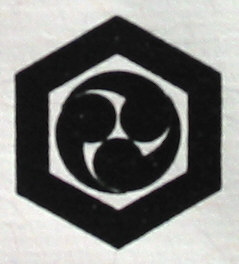
JAPANESE PRINTS
A MILLION QUESTIONS
TWO MILLION MYSTERIES
Ukiyo-e Prints浮世絵版画 |
| Kansas City, Missouri |
|
UTAGAWA TOYOKUNI III 三代目歌川豊国 1786-1865 |
||
|
Play: Hana shobu otoko-kagami |
||
|
外題: 伊勢 恋湊 |
||
|
Actor: Iwai Kumesaburō III 岩井粂三郎 |
||
|
Role: Aburaya Okon 油屋おこん Okon of the Aburaya teahouse |
||
|
Signature: Toyokuni ga |
||
|
Publisher: Yamaguchiya Tōbei 山口屋藤兵衛 |
||
|
Date: 1855, 4th Month Ansei 2 安政2 |
||
|
Print Size: 14 1/4" x 9 5/8" |
||
|
Matt Size: 20" x 16" |
||
|
This is the right-hand panel of a triptych. |
||
|
Illustrated: There is another copy of this print at the Tsubouchi Memorial Theatre Museum, Waseda University online (their site is in Japanese) |
||
|
There are copies of the full triptych in the Victoria and Albert Museum and also in the Museum of Fine Arts, Boston. |
||
|
$245.00 NO LONGER AVAILABLE! |
|
|
|
|
|
|
|
|
|
|
Triptych in the collection
of the |
|
|
IT WAS A BLOODY MESS |
|
|
|
In 1796 in the town of Furuichi near the Ise Shrine a drunken doctor went on a murderous rampage in the local Aburaya brothel. Before it was over a number of people lay dead or wounded including the maid Oman. Two days later the doctor committed suicide at the home of his uncle who was a low-ranking priest at the shrine.
This series of events and others like it had been fuel for the creative talents of 18th century authors. Within ten days the first performances of a play based on this incident was being performed in a town nearby. Its success spurred Chikamatsu Tokuzō (近松徳三:1751-1810) and two of his assistants to create their own version which debuted in Kyōto just two and a half months later. Supposedly written in only three days this qualifies it as an "overnight pickle play" or ichiyazuke kyogen (一夜漬狂言).
Like other murderous plays this one was often performed during the summer "...when the bloodcurdling doings on stage might provide audiences some 'chilling' relief in sultry weather."
Okon's lover is the sensitive Mitsugi, but when he takes possession of a bloodthirsty sword his whole personality changes. Okon is the heroine, but her role is somewhat secondary. Although Mitsugi leaves a stage littered with the dead and dying he is never blamed. The sword is. After several more dramatic scenes three figures 'pose triumphantly' at the end including Mitsugi and Okon. While this leaves the audience thinking this might be a happy ending it is nevertheless slightly ambiguous - "...Okon's fate remains vague." |
|
|
|
Source and quotes from: Kabuki Plays On Stage: Villainy and Vengeance, 1773-1799, edited by James R. Brandon and Samuel L. Leiter. Honolulu: University of Hawai'i Press, 2002, pp. 320-22. |
|
MY GOODNESS! PRINTS NEVER FAIL TO AMAZE ME |
||
|
|
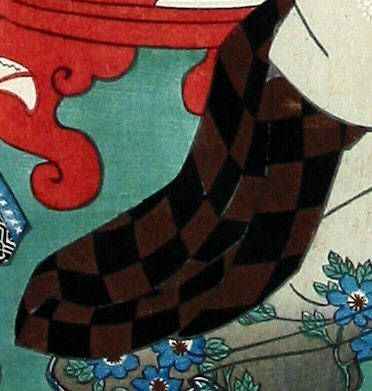 |
|
|
|
||
|
The image on the right above is a detail from the clothing of the onnagata, i.e., male actor in a female role, as you would normally view it. The image on the left of approximately the same area was taken at an oblique angle in a brightly sunlit room. One could own this print for decades and never notice the burnishing. And yet, isn't it amazing the pride the publisher took in the production of a piece which most connoisseurs would view as a pleasant, but rather ordinary print?
We noted another Toyokuni III example recently which exhibits a similar attention to detail. Although that example was published by another house and was marketed several years earlier it displays the same qualities. To read more about that one click on the dragon's head below. |
||
|
|
||
|
FOR OTHER EXAMPLES OF THIS SPECIAL PRINTING TECHNIQUE CLICK ON THE EXAMPLE BELOW. |
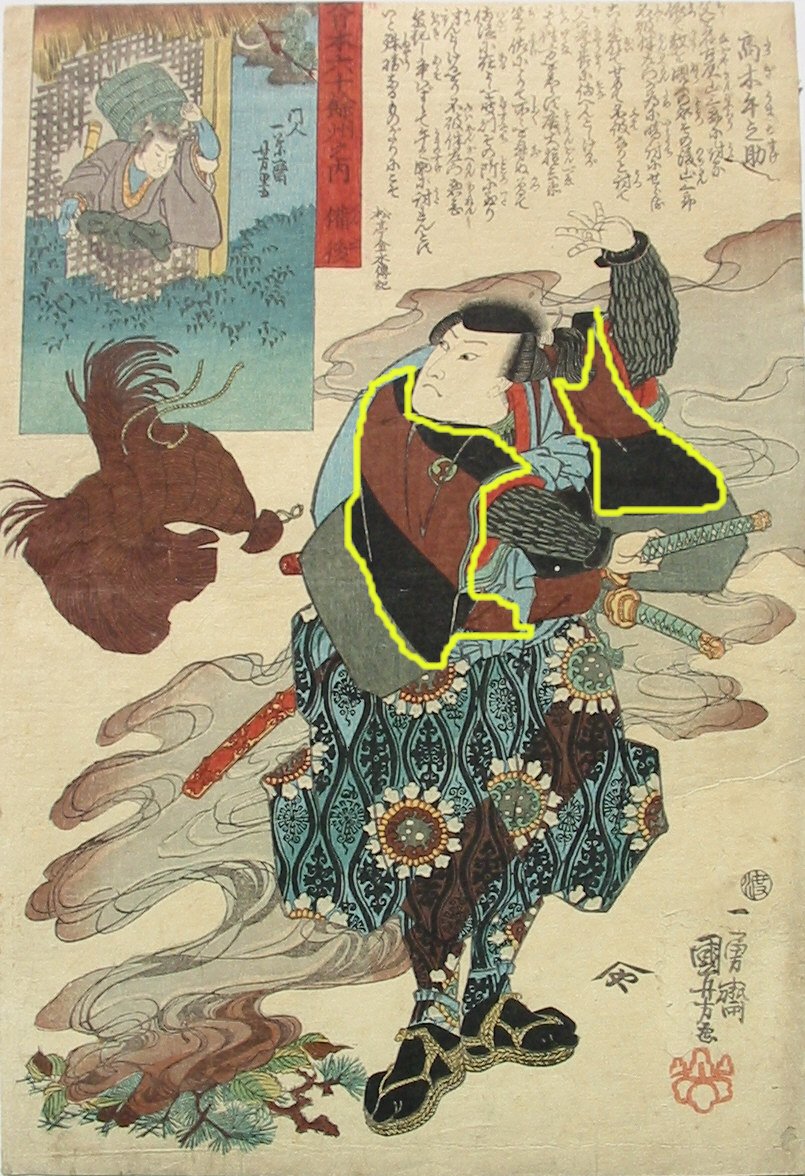 |
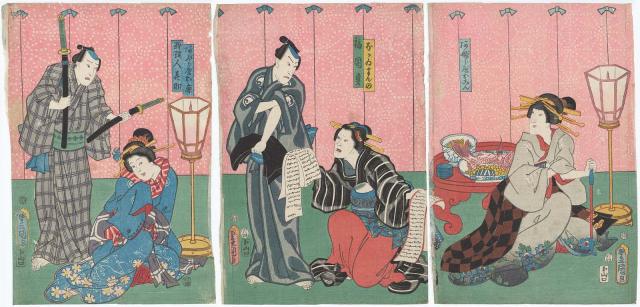
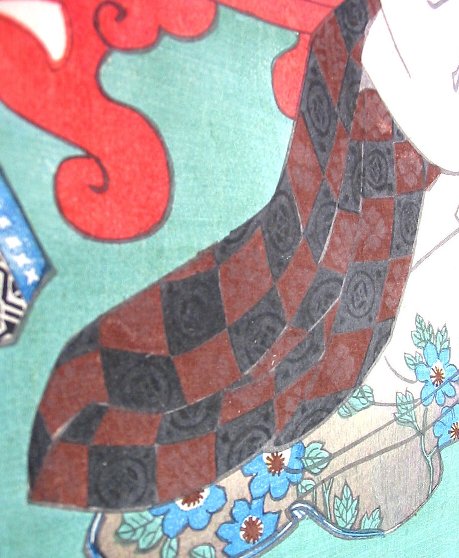
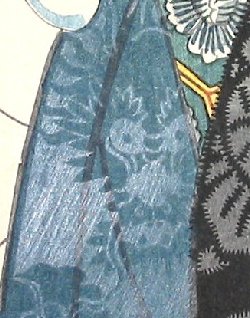
 HOME
HOME